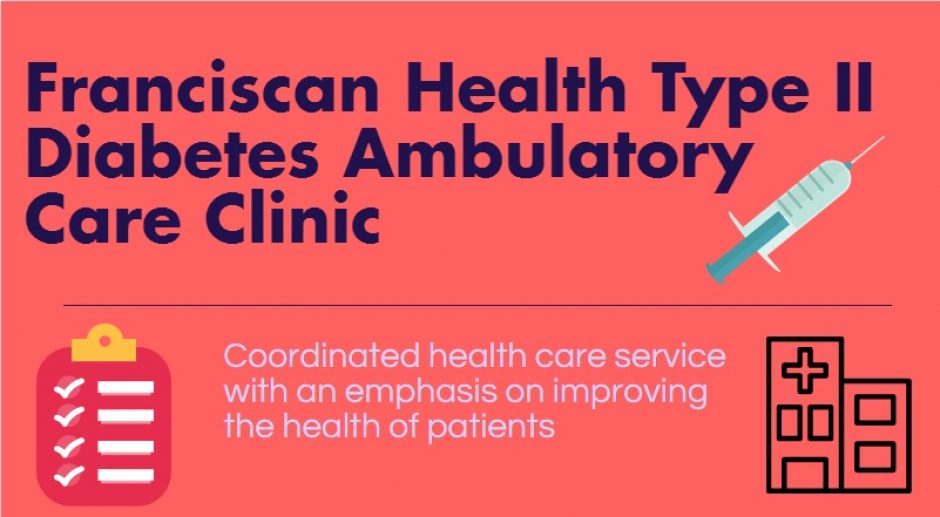
Problem:
Millions of Americans are living with Type II Diabetes and often they are left to care for themselves, monitor their disease state, and make sure they are taking their medication appropriately. Many patients are lacking the knowledge and tools they need to manage their disease state. This lack of knowledge leads to numerous healthcare costs as well as hospital admissions. The Diabetes and Endocrinology Center at Franciscan Health aims to care for a portion of these patients living with Type II Diabetes. Recently the accountable care organization of Franciscan Health decided to require all of the ACO members to visit the Diabetes and Endocrinology Center for their care and with only one floor and a limited number of providers on staff, the Center is in need of new and creative ways to see patients.
Solution:
Ambulatory Care pharmacists could fulfill the needs of the Diabetes and Endocrinology Center by serving as additional providers to see patients. They could help combat the problems typically seen among patients living with Type II Diabetes by educating them on their disease state, providing the tools they need to monitor their diabetes, and providing education so that they are confident in using their medication and knowing how it can help them. The work of an ambulatory care pharmacist can help to decrease healthcare costs and prevent hospital admissions as well by improving patient outcomes and satisfaction.
Purpose:
The purpose of the clinic will be to focus on the patient and provide personalized care to educate them on their disease state, medication therapy, and the use of diabetes testing supplies and medication delivery devices. By creating open communication between the pharmacist and patient, the clinic will improve patient health, outcomes, and satisfaction.
Background:
Type II Diabetes is a common disease state that can lead to increased morbidity and mortality leading to higher medical expenditure. Studies and models have shown that through pharmacist intervention, patient outcomes can be improved and total healthcare expenditure can decrease.
Clinic:
Located inside the Diabetes and Endocrinology Center at Franciscan health, the ambulatory care clinic will allow qualified pharmacists to see patients 4 half days a week in an existing exam room. Ambulatory Care pharmacists preforming these services will have PGY1 and PGY2 residencies in ambulatory care, pharmacotherapy, transitions of care, internal medicine, or equivalent experience as well as BCACP board certification.
Evidence:
Multiple studies have shown that pharmacists can play a vital role in improving patient outcomes and decreasing healthcare expenditure.
Finances:
With billing for a facility fee, since the clinic will be tied to the hospital, the clinic has the opportunity to break even very quickly. Reimbursement from meeting the values of Franciscan Health’s ACO is an opportunity as well.
Goals:
- Optimize medication therapy
- Educate patient’s about their disease state – personalized care
- Reduce patient’s A1C
- Expand the service by hiring full time pharmacist for the clinic
- Meet patient satisfaction benchmarks that align with Franciscan Health’s mission and vision
- Establish a collaborative practice agreement once practice has been established
